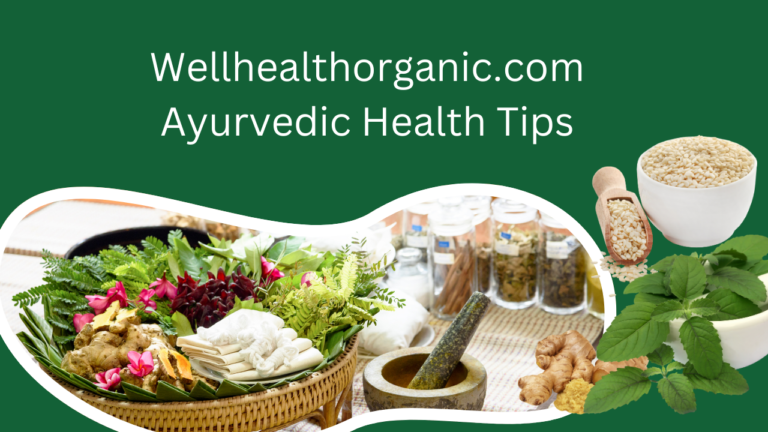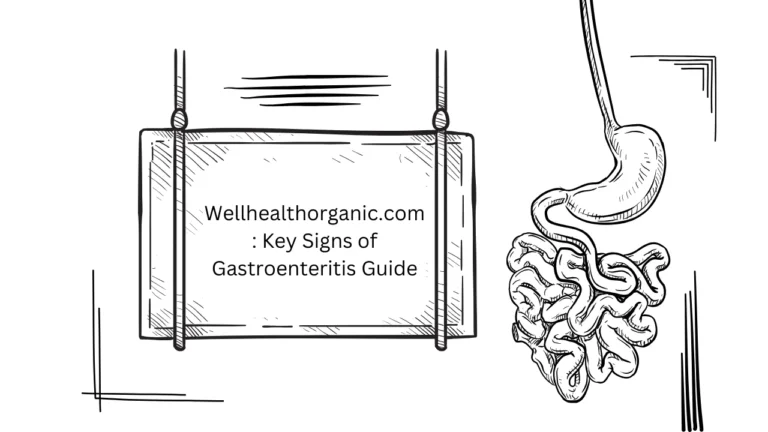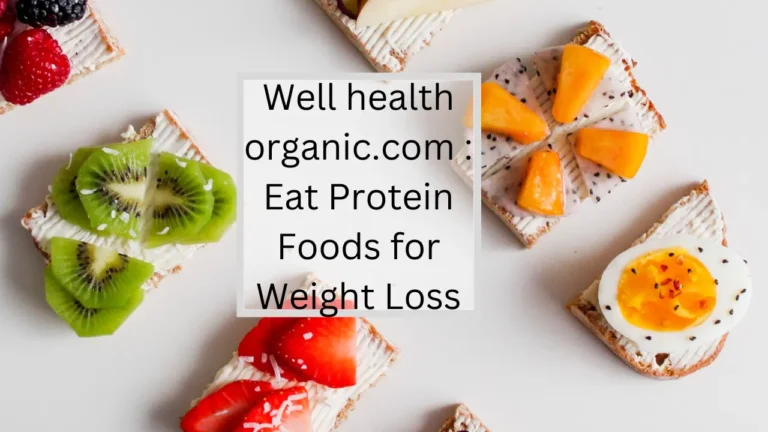Wellhealthorganic.com : Vegetarian Protein Source Archives
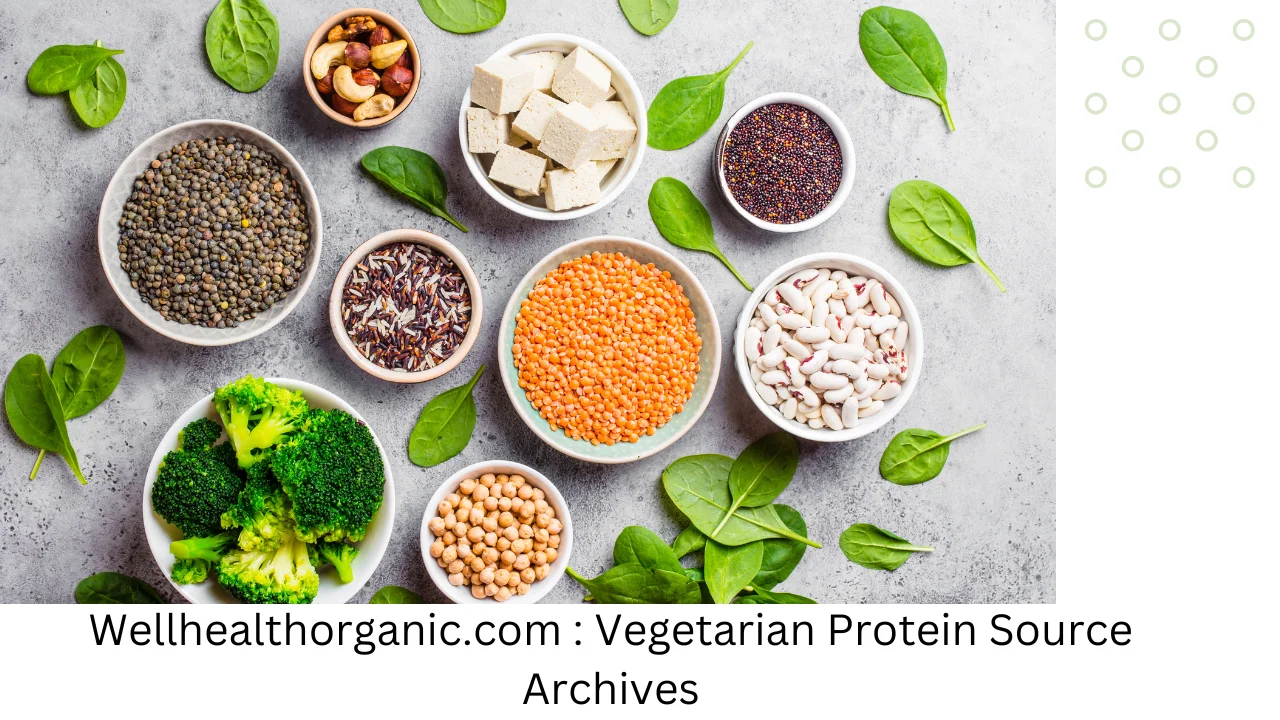
Introduction
For those following a vegetarian diet, getting the right amount of protein can sometimes feel challenging. However, with the right guidance, anyone can ensure they get the essential nutrients without needing meat. Wellhealthorganic.com : vegetarian protein source archives is an invaluable resource for anyone looking to enhance their diet with plant-based protein sources. This website offers a wide range of articles that provide insights into various vegetarian protein-rich foods, their health benefits, and tips for including them in daily meals.
In this article, we’ll delve into the key resources found in wellhealthorganic.com : vegetarian protein source archives, exploring the importance of vegetarian proteins, various sources, and tips on how to incorporate them easily into your diet.
Understanding Vegetarian Protein Needs
Protein is an essential nutrient that plays a vital role in many bodily functions, from muscle repair and immune support to hormone production and enzyme activity. For vegetarians, understanding protein needs is crucial, as they often rely solely on plant-based sources to meet their daily intake. While it’s a common misconception that vegetarians struggle to get enough protein, a well-planned diet can provide all the necessary amino acids – the building blocks of protein – required for optimal health.
Vegetarian protein needs vary depending on factors like age, gender, physical activity level, and overall health. Generally, adults should aim for 0.8 grams of protein per kilogram of body weight, but active individuals or athletes may require more. Plant-based proteins, however, are sometimes less concentrated than animal proteins, so vegetarians may need to be intentional about their food choices and meal combinations to ensure sufficient intake. Combining foods like grains and legumes, for instance, can create a complete protein profile, providing all essential amino acids.
Benefits of Vegetarian Protein Sources Over Animal Proteins
Vegetarian protein sources offer a range of unique health benefits over animal proteins, making them an excellent choice for many people. Firstly, plant-based proteins are generally lower in saturated fats, which can reduce the risk of heart disease and lower cholesterol levels. In addition to being heart-healthy, vegetarian protein sources are often rich in fiber, a nutrient essential for good digestion and weight management. This fiber also helps regulate blood sugar levels, promoting sustained energy without the spikes and crashes often associated with animal protein-heavy diets.
Another significant benefit of vegetarian proteins is their abundance of antioxidants, vitamins, and minerals. Foods like legumes, nuts, seeds, and whole grains provide nutrients like vitamin E, magnesium, and phytonutrients that help fight inflammation and support overall cellular health. Additionally, plant-based protein sources contribute less to environmental impact, as their production typically requires fewer resources than animal farming, making them a more sustainable choice.
Combining Plant Proteins for Optimal Health
One of the best ways for vegetarians to achieve complete nutrition is by combining different plant proteins to create a balanced amino acid profile. While many animal proteins naturally contain all essential amino acids (making them “complete” proteins), not all plant-based sources do. However, by pairing complementary foods, vegetarians can easily obtain all the amino acids needed for bodily functions, such as muscle repair, immune defense, and hormone production.
Combining foods like grains and legumes is a classic example of how plant-based eaters can achieve optimal health. For instance, rice is low in lysine but rich in methionine, while beans are high in lysine but lower in methionine. Together, they create a complete protein, covering all essential amino acids. Other complementary combinations include whole wheat bread with peanut butter or corn tortillas with black beans.
Another benefit of combining plant proteins is the added diversity of nutrients. Each food group offers a unique array of vitamins, minerals, fiber, and antioxidants. For example, while grains can provide B vitamins and fiber, legumes are often rich in iron and folate. By diversifying protein sources, vegetarians not only meet their protein requirements but also gain various health benefits that contribute to overall wellness.
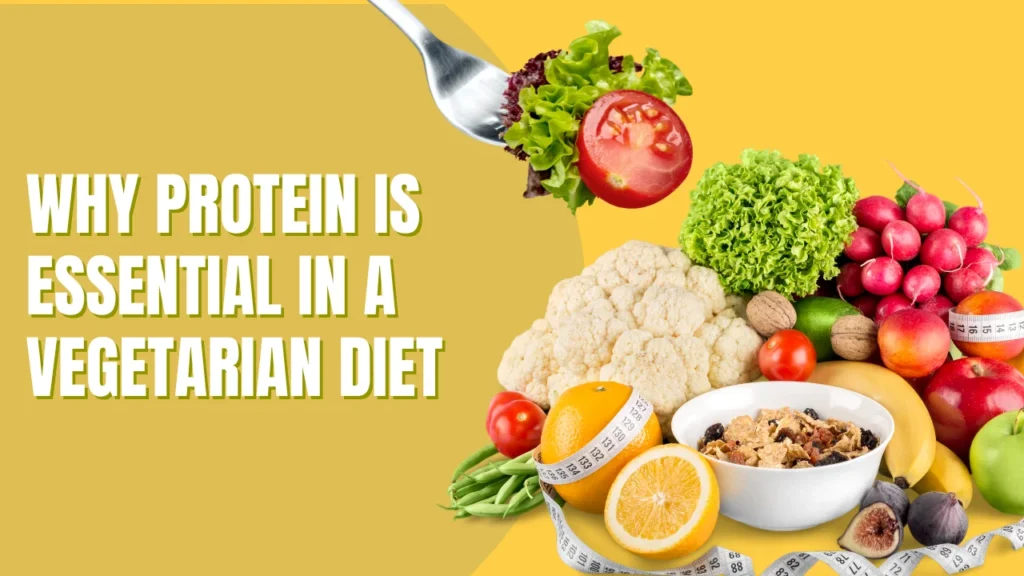
Why Protein Is Essential in a Vegetarian Diet
Protein is a vital nutrient for everyone, but vegetarians need to be more mindful of their intake to ensure they’re getting enough. Protein supports muscle growth, immune function, and cell repair, which are crucial for maintaining a healthy body. In the absence of animal protein sources, vegetarians can still meet their needs by focusing on high-quality plant-based proteins.
One of the common misconceptions is that vegetarian protein sources lack complete amino acids. However, wellhealthorganic.com: vegetarian protein source archives has compiled a list of vegetarian foods that can provide essential amino acids and sufficient protein for a balanced diet.
Also Read: Bestadvise4u.com Health: A Guide to Wellness
Top Vegetarian Protein Sources
On wellhealthorganic.com : vegetarian protein source archives, users can find detailed articles about various plant-based protein sources. Here are some of the most recommended options:
1. Legumes and Beans
Legumes, including lentils, chickpeas, and black beans, are excellent protein sources. They are versatile and easy to incorporate into a variety of dishes, from salads to soups and stews. According to wellhealthorganic.com: vegetarian protein source archives, legumes not only provide protein but also offer a good amount of fiber, promoting digestive health.
Also Read: Wellhealthorganic.com : Neem and Aloe Vera Juice
| Type of Legume | Protein Content (per 100g) | Additional Benefits |
|---|---|---|
| Lentils | 9g | High in iron and fiber |
| Chickpeas | 19g | Great for heart health |
| Black Beans | 21g | Rich in antioxidants |
Legumes are an affordable and sustainable protein source, and they can be used in various cuisines.
Also Read: Heritage Health TPA Efficient Healthcare Administration
2. Nuts and Seeds
Nuts and seeds are nutrient-dense and provide protein alongside healthy fats. Options like almonds, chia seeds, and flaxseeds are popular choices. The articles in wellhealthorganic.com : vegetarian protein source archives emphasize these foods for their protein, fiber, and omega-3 fatty acid content. Chia seeds, in particular, are highlighted for their complete protein profile, making them an excellent choice for vegetarians.
| Nut/Seed | Protein Content (per 30g) | Other Nutrients |
|---|---|---|
| Almonds | 6g | Vitamin E, magnesium |
| Chia Seeds | 5g | Omega-3s, antioxidants |
| Flaxseeds | 5g | Fiber, lignans |
3. Whole Grains
Whole grains are another protein source recommended by wellhealthorganic.com: vegetarian protein source archives. Foods like quinoa, farro, and oats not only contain protein but also provide essential nutrients such as fiber, vitamins, and minerals. Unlike refined grains, whole grains retain the nutrient-rich bran and germ, making them a healthier choice.
Quinoa, often called a “superfood,” is unique among grains for its complete protein profile. For those seeking variety in their meals, wellhealthorganic.com suggests incorporating whole grains into salads, bowls, and side dishes to boost protein intake.
Also Read: The Path to a Healthy Life with WellHealthOrganic
4. Dairy Products and Plant-Based Alternatives
If you consume dairy, products like Greek yogurt, cottage cheese, and milk can serve as reliable protein sources. For those who prefer plant-based alternatives, options like soy milk, almond milk, and oat milk are available. Soy-based products, such as tofu and tempeh, are particularly emphasized on wellhealthorganic.com: vegetarian protein source archives due to their high protein content and versatility.
| Product | Protein Content (per 100g) | Notes |
|---|---|---|
| Greek Yogurt | 10g | Probiotics for gut health |
| Tofu | 8g | Versatile in many recipes |
| Soy Milk | 3.3g | Lower in calories than dairy |
Practical Tips for Adding Vegetarian Protein Sources
Wellhealthorganic.com: vegetarian protein source archives provides several suggestions for incorporating these protein sources into daily meals. By combining various foods, vegetarians can meet their protein needs easily.
- Combine Different Sources: Eating a mix of grains, nuts, and legumes can provide a balanced amino acid profile. For instance, pairing rice with lentils creates a complete protein source.
- Prepare High-Protein Snacks: Incorporate protein-dense snacks, such as Greek yogurt with chia seeds, hummus with veggie sticks, or a handful of almonds, into your routine. These snacks are easy to prepare and help meet your daily protein goals.
- Experiment with Plant-Based Protein Powders: For those with higher protein requirements, plant-based protein powders made from peas, rice, or hemp can be an option. Many articles in wellhealthorganic.com: vegetarian protein source archives provide guidance on choosing quality powders and incorporating them into smoothies and other recipes.
Also Read: The Dr. Y.S.R. Aarogyasri Health Care Trust
Health Benefits of Incorporating More Protein
According to wellhealthorganic.com: vegetarian protein source archives, adequate protein intake has numerous benefits beyond muscle health. A protein-rich diet can help with weight management by promoting satiety, reducing cravings, and stabilizing blood sugar levels. Furthermore, plant-based proteins offer additional advantages, such as lowering the risk of cardiovascular diseases, reducing inflammation, and promoting gut health due to their high fiber content.
Conclusion
Incorporating sufficient protein in a vegetarian diet is both achievable and beneficial for overall health. Wellhealthorganic.com: vegetarian protein source archives is a valuable resource that offers insights into the best vegetarian protein sources, along with practical tips on integrating them into daily meals. By exploring options such as legumes, nuts, whole grains, and dairy alternatives, vegetarians can enjoy a varied and nutritious diet without compromising on protein intake.
For those looking to deepen their understanding and expand their dietary choices, wellhealthorganic.com: vegetarian protein source archives is a trusted source for staying informed on protein-rich foods that support a healthy lifestyle.
Also Read: Introduction to the Pandit Deendayal Upadhyay Health Card


